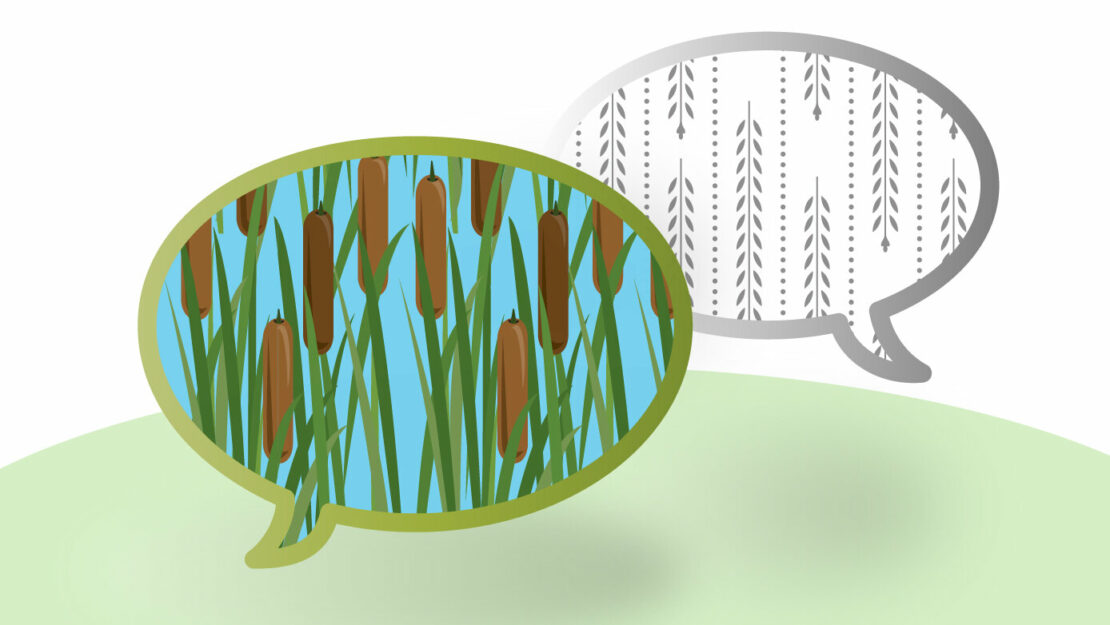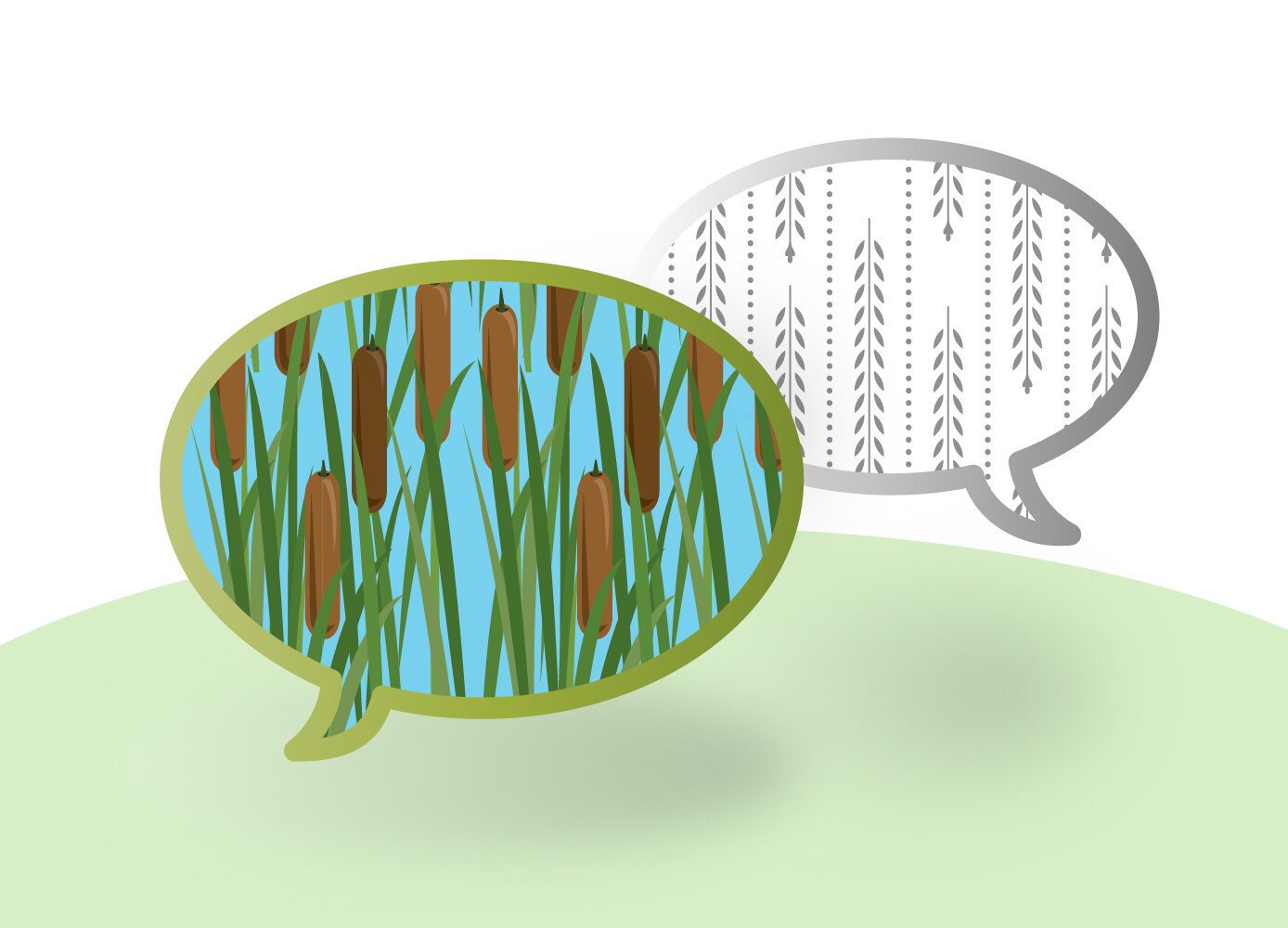Conservation Language

by David Minor, Communications Outreach Specialist/ AmeriCorps Member with MN DNR Scientific and Natural Areas through Conservation Corps’ Individual Placement program
Words are a pretty important part of my job. Nearly every day I am figuring out which words work well and what locutions (words) don’t. I have spent a lot of time trying to think of all the possible interpretations of my word choice, so I can more effectively communicate. No one can think of it all. But I am learning, improving, and doing the best I can.

An example:
For a while, when writing about invasive species management for the Minnesota Scientific and Natural Areas Program, I would make social media posts about “battling invasives” and “fighting these pesky plants.” I used a lot of these “war metaphors.” It made sense in my head to phrase it this way, “combat invasive plants! Use the boot brush.” That is how I heard it talked about so many times before. What’s the problem here again?
Well, I asked a colleague at the Department of Natural Resources who works on invasive species to review one of these posts for me. She pointed out my use of “militaristic language.” While it may be motivating immediately, she suggested that a different metaphor may be better in the long run, attaching an article that argued the reasoning why.
I recommend reading the article, it was very interesting.
“these metaphors are problematic because (1) they lead to an inaccurate perception of invasive species; (2) they contribute to social misunderstanding, charges of xenophobia, and loss of scientific credibility; and (3) they reinforce militaristic patterns of thought that are counterproductive for conservation.”
Basically, when I wrote “join the battle against these invasive species!” You could interpret that as “these species are inherently evil. It doesn’t matter how they got here, they just showed up, and now it’s our job to kick them out by whatever means necessary. We are clearly the hero here.”
OOF…
Now, that may be an extreme analysis of the phrase “join the battle against invasive species,” but language, especially loaded warlike language, carries consequences. I don’t know about you, but when I think of what comes after a battle, I don’t think of healthy balanced system (eco or otherwise). The language choice subtly influences your frame of reference. I cannot adequately explain all of the nuances, I suggest reading the article for that.
So this is just one example of myself learning, and improving my communications strategies. I thankfully have had other lessons like this as well. The words we use are important and have real effects (“murder hornets,” anyone? How about “citizen science?”). It is important to continually learn and improve. You are never done. I am thankful that my Conservation Corps experience has allowed me to do this.
Anyway, this entire post has gotten me out of my depth. But that is the point, isn’t it?
Make mistakes, learn, and keep going.